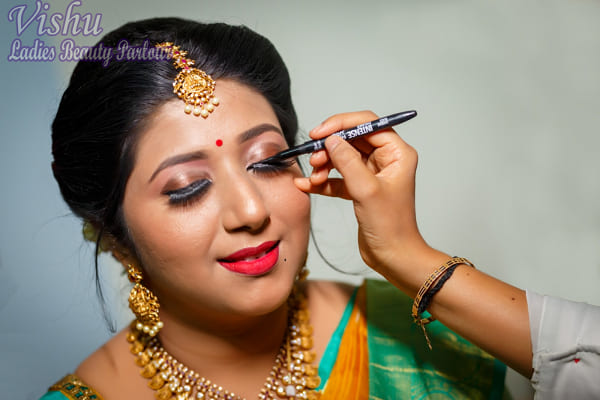Makeup Stage
A makeup stage typically refers to the area or space where makeup is applied, particularly in the context of theatrical, film, television, and perform ... read more.

A makeup stage typically refers to the area or space where makeup is applied, particularly in the context of theatrical, film, television, and performance art productions. The makeup stage is where actors, performers, and makeup artists prepare and apply makeup to create specific characters, looks, or effects for the production. Here are some key aspects of a makeup stage:
Design and Setup: The makeup stage is designed to accommodate the makeup artists, performers, and their equipment. It often includes well-lit, mirrored workstations, chairs, and storage for makeup products and tools.
Lighting: Adequate lighting is crucial for makeup application. The lighting on the makeup stage is usually bright and even to ensure that makeup artists can see the details of the performers faces clearly.
Mirrors: Large, well-lit mirrors are an essential feature of the makeup stage. They allow the performers and makeup artists to assess the makeup application from different angles and ensure that it meets the productions requirements.
Makeup Products: The makeup stage is stocked with a wide range of makeup products, including foundations, concealers, eyeshadows, lip colors, special effects makeup, and more. These products are carefully selected to suit the needs of the production.
Makeup Tools: Makeup artists have access to various makeup tools, such as brushes, sponges, applicators, and special effects tools, to create the desired looks.
Character References: The makeup stage may have visual references, such as character sketches or photographs, to guide makeup artists in creating the intended looks for the performers.
Special Effects Area: For productions that require special effects makeup, the makeup stage may include a dedicated area for creating and applying prosthetics, wounds, scars, and other special effects.
Hygiene and Sanitation: Hygiene and sanitation are critical on a makeup stage. Makeup artists are responsible for maintaining clean and sanitized tools and adhering to strict hygiene standards to prevent the spread of infections.
Preparation Time: The makeup stage allows performers to prepare for their roles by having their makeup professionally applied, which can be a time-consuming process, especially for complex character makeups or special effects.
Collaboration: The makeup stage often fosters collaboration between makeup artists and performers, as both parties work together to achieve the desired makeup looks.
Privacy: Performers may use the makeup stage to prepare and transform without the audiences view, preserving the element of surprise during performances.
Makeup stages are common in the entertainment industry, and they play a crucial role in bringing characters to life on stage, in films, and on television. Makeup artists on the makeup stage have the skills and expertise to create a wide range of looks, from natural and subtle makeup to intricate character transformations and special effects. Our Vishu Ladies Beauty Parlour beautician in and provide best salon services, including bridal makeup, mehndi, nail art , nail extention, waxing, threading, hair care, skin clean up, facial bleach, manicure, pedicure, party makeup, de-tan treatment and spa treatment